Get A Look At This Garden We Found In Palm Springs
Posted by admin on
We’ve been traveling through the sunbelt, from Florida to California, for the past several months and have had the delightful experience of seeing many types of cacti and desert plants in their natural setting.
For us and many other RVers who are not originally from the south, this unique foliage is half the fun of traveling south of the Mason-Dixon Line. Our first sighting of a Saguaro Cactus was almost as exciting as seeing our first bear in Canada.
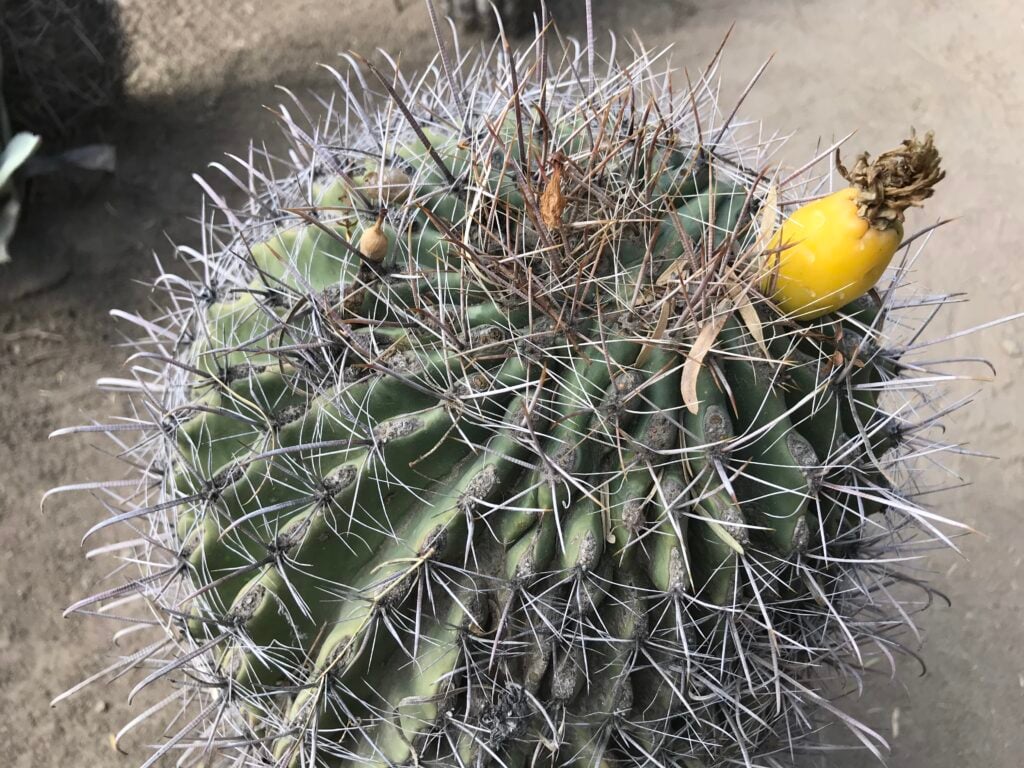
Barrel cactus in bloom. Photo by Peggy Dent
We’re from the Northwest, and yes, we miss the dense Northwest forests, but this unique desert foliage including Joshua Trees, Barrel Cacti, Jumping Chollas, Aloes, Agaves, and of course, the Saguaro Cacti, are just as amazing (in their own way) as the majestic stands of Redwoods along the Northern California coast, or the graveyard forests laid down like pickup sticks by the Mt. St. Helen’s volcanic eruption over 30 years ago.
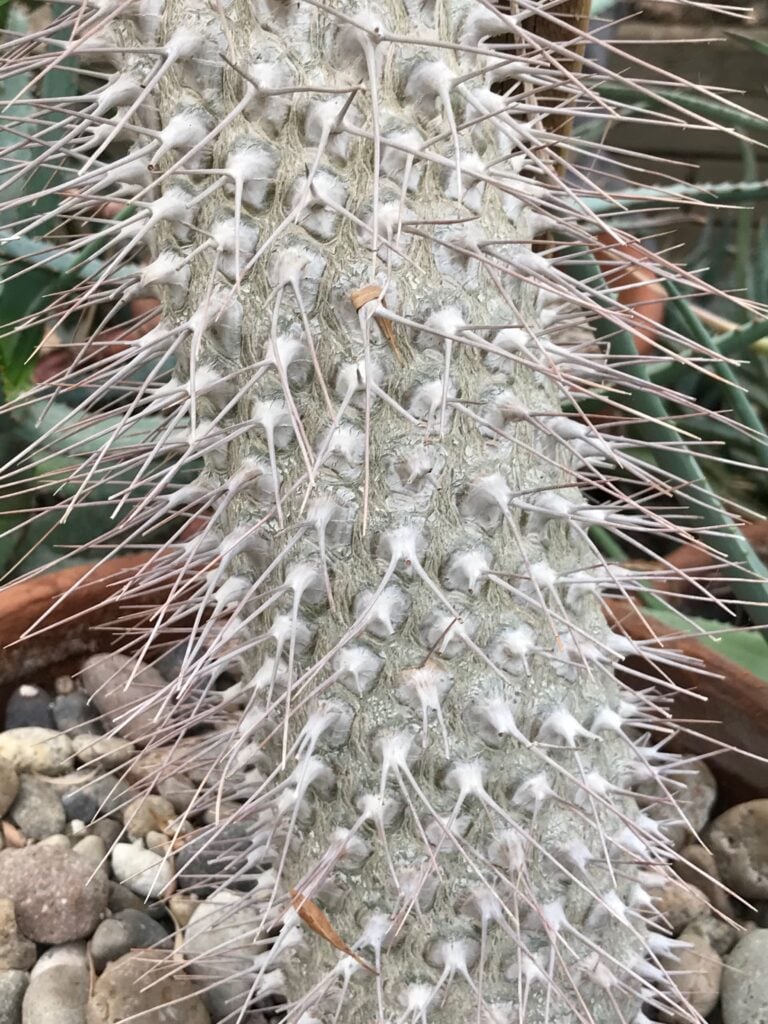
These spikes are as sharp as they look. Photo by Peggy Dent
I believe that one of the reasons so many of us have sold our homes and committed to a full-time RV lifestyle is to have an opportunity to travel to new communities, to experience regional foods, to see sights we had only seen in books or movies, and to immerse ourselves in a different environment. Traveling through the immense stretches of open country in Texas and other southern states gave us a unique opportunity to see foliage and fauna not found anywhere else in the country.
I’m particularly interested in the geology and natural features of new regions. I can skip the famous man-made attractions, like Disney World and Graceland, but even the sighting of an armadillo along the road in Texas was of great interest to me.
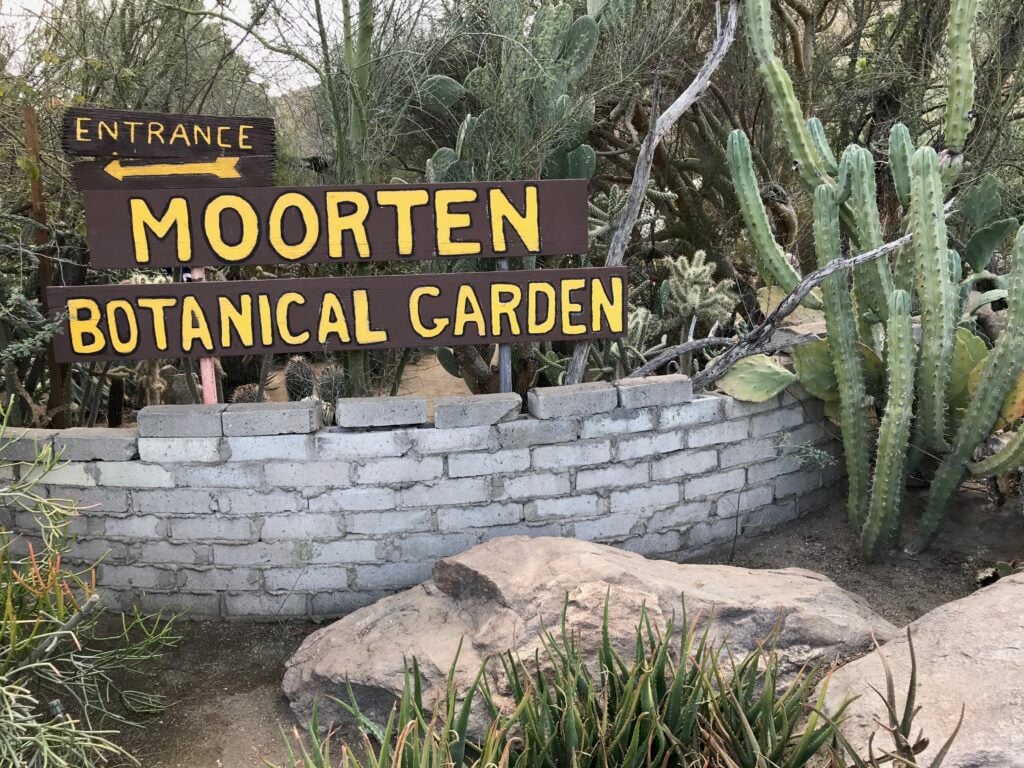
It’s a little rustic but amazing! Photo by Peggy Dent
Moorten Botanical Garden
While driving across Texas, New Mexico, Arizona, and Southern California, we were excited to see so many different types of succulents, but when we got to Palm Desert, we discovered the motherlode of cacti at a private garden called Moorten Botanical Garden and Cactarium, located in Palm Springs.
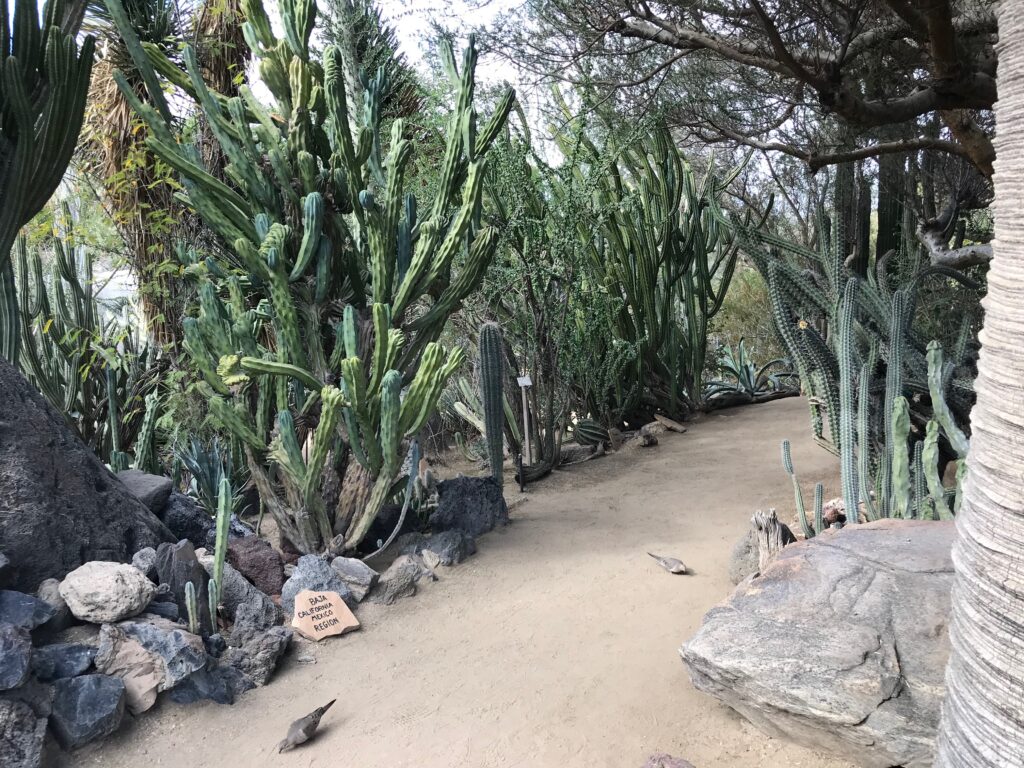
The path through the cactus garden. Photo by Peggy Dent
This garden brings together the regional cacti from all across the US, Mexico, South America, and Madagascar, into a full acre of unique garden displays.
The privately-owned garden was first established in 1939 as a nursery and later reorganized into a touring garden in 1955, during Palm Spring’s heyday, when it was THE glitzy getaway for Hollywood’s elite.
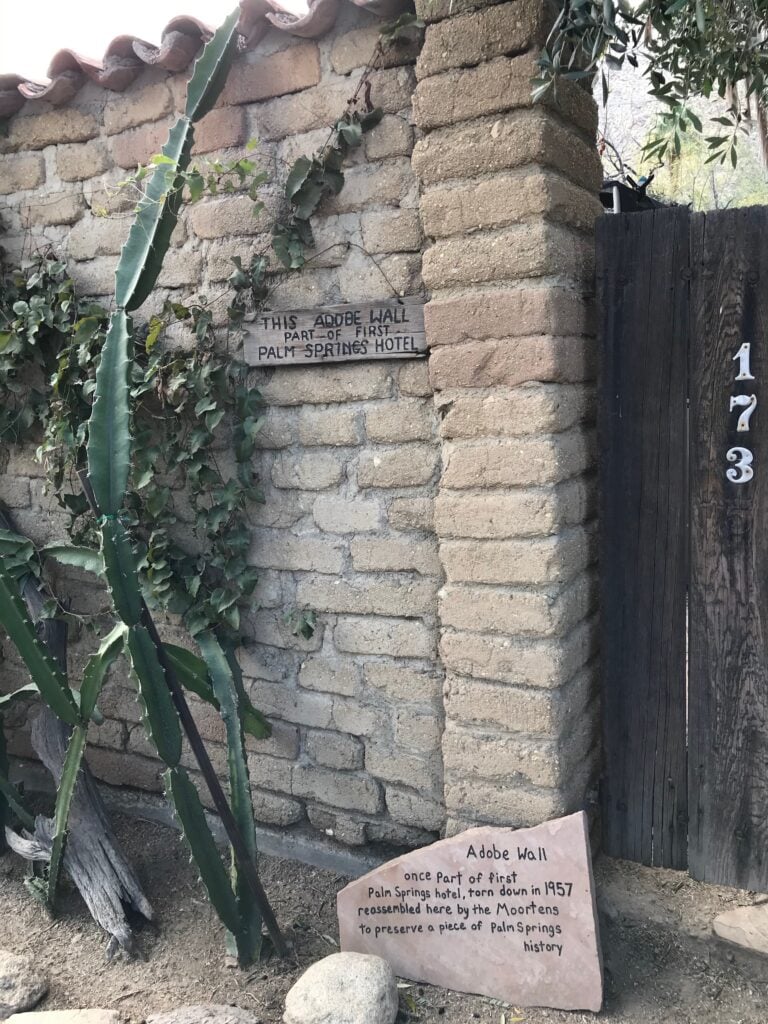
This was part of the original Palm Springs Hotel. Photo by Peggy Dent
Garden tour
The garden tour only cost $5 per person to walk the self-guided pathways, where you will find over 3000 different varieties of cacti and desert plants, as well as petrified logs, large gemstones in their raw form, ancient dried cacti skeletons, twisted old snags, and artifacts from the days of the California gold rush.
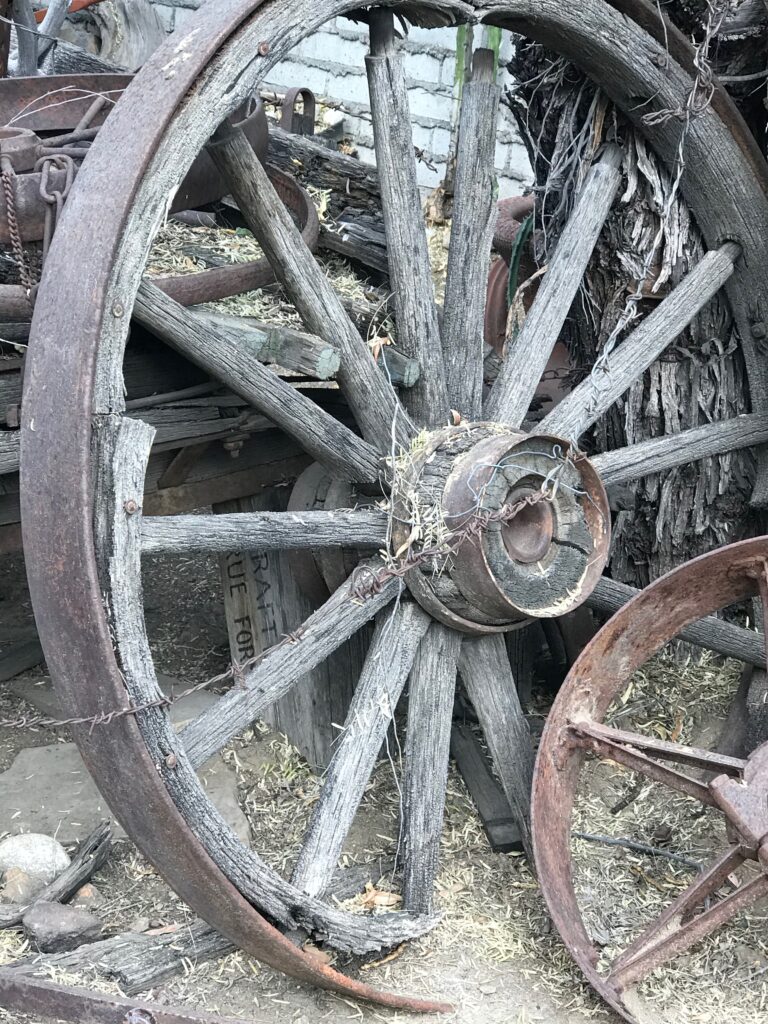
Artifacts from the days of the California gold rush. Photo by Peggy Dent
The foliage is grouped by region and well-marked by signs along the paths. The diversity and scale of the plant life on both sides of the path are literally breathtaking, but be careful not to back up too much to get a better picture, because everything in this park has some kind of wicked spine, hook, or barb.
You will also see hummingbirds, doves, pigeons, tortoises, and an occasional small lizard inside the garden to add more authenticity to this unique environment.
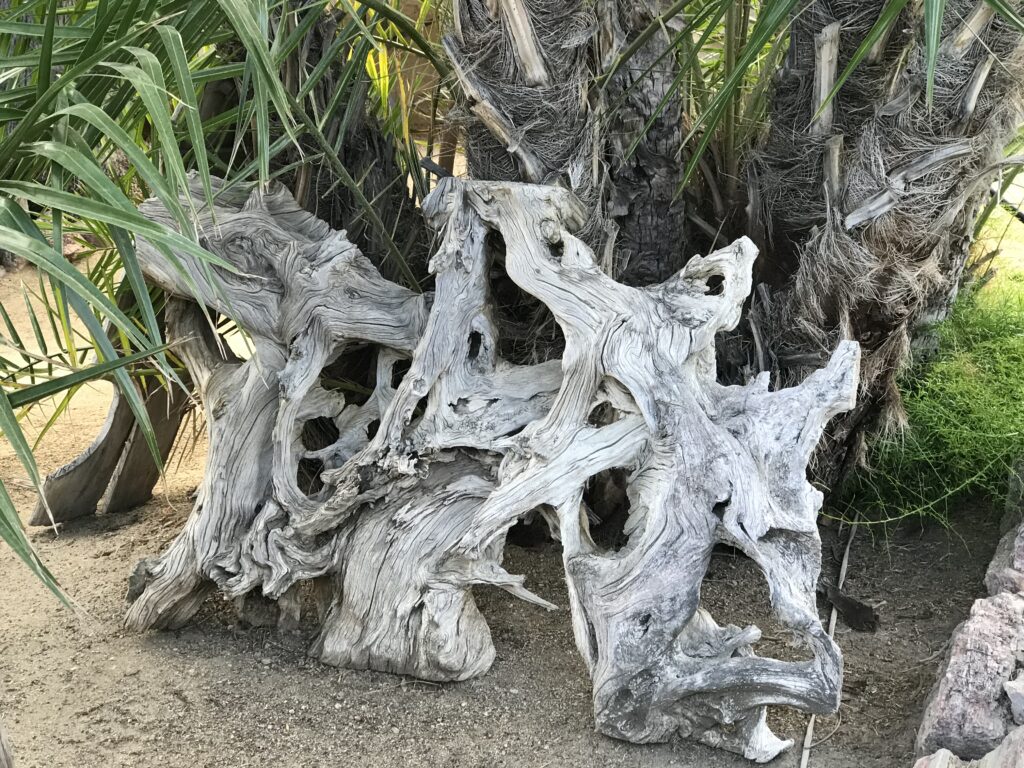
There are many unique features like this one in the garden. Photo by Peggy Dent
If you want to take a cactus back to your rig, they sell a wide variety, priced from $6 to $45 along with many different pots. I personally didn’t buy one because I haven’t met a cactus yet that I didn’t put through the slow and tortured death of too much water. Additionally, we’re headed back to Canada and you can’t take plants, dirt, or firearms of any kind across the border.
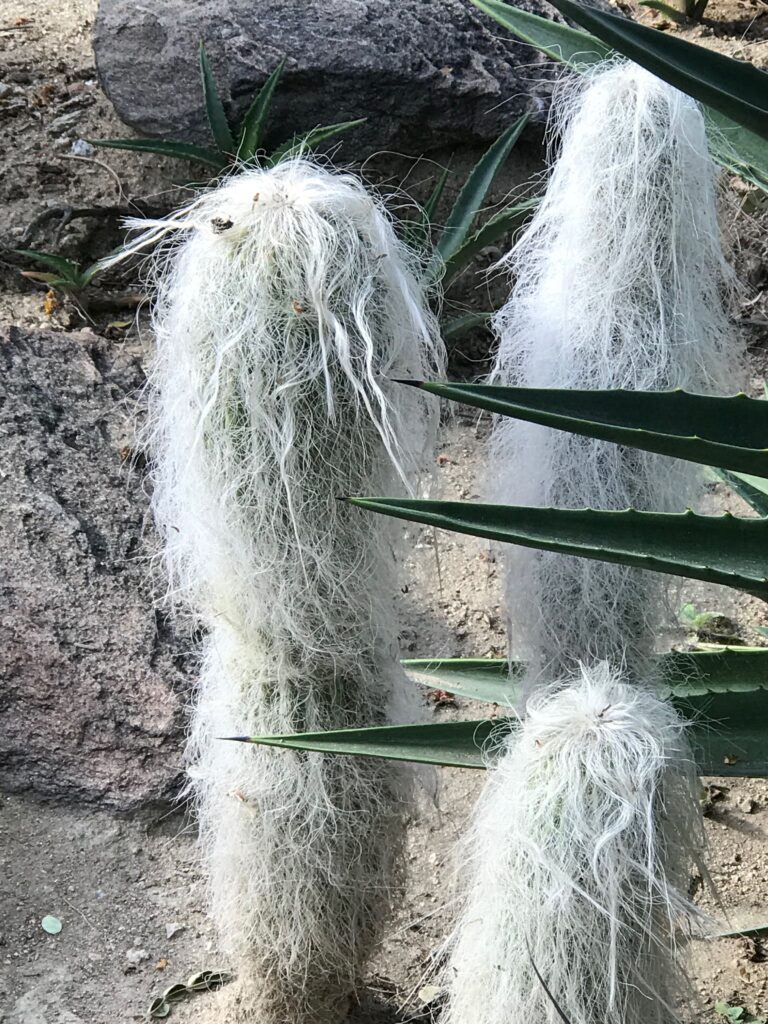
There are over 3000 varieties of cacti in the garden. Photo by Peggy Dent
Other attractions of Palm Desert & Palm Springs
You may never get to Palm Springs in your travels, but since this is such a popular snowbird destination for so many RVers in the western half of Canada and the US, I thought I’d point out this historic living garden so you can put a pin in it if you ever get a chance to visit Palm Springs or Palm Desert.
Like so many of our fellow RVers that we’ve met here in this oasis in the desert, we are learning that there are too many activities and attractions to get done in one visit. This area consists of numerous little cities, all joined together like a string of pearls, nestled between two raw mountain ranges.
There are several excellent RV parks right inside these little cities or traveling just a few miles outside the metropolitan area, gives RVers many opportunities to camp, hike, bike, or boondock, in regional, state, and national parks. You can learn more about all of the different options by doing a quick search on CampgroundReviews.com, RV Trip Wizard, or on the RV LIFE App.
There is also a breathtaking tram ride to the top of the Jacinto Mountains, or you can stay in town and do the Palm Springs Walk of Stars, where celebrities have their stars embedded in the sidewalk.
Palm Springs also has two weekly street fairs, one in downtown Palm Springs on Thursday evening and the other on the campus of the College of the Desert every weekend. There are golf courses in abundance and a stop at Shield’s Date Farm will inform you about one of the region’s oldest and most unique crops.
But while you’re making your list of places to go and things to do, if and when, you get to the Palm Desert area, don’t forget to put Moorten Botanical Garden and Cactarium on your list of must-see attractions. It’s a very sharp place, and I mean that in every sense of the word.
The post Get A Look At This Garden We Found In Palm Springs appeared first on RV LIFE.
